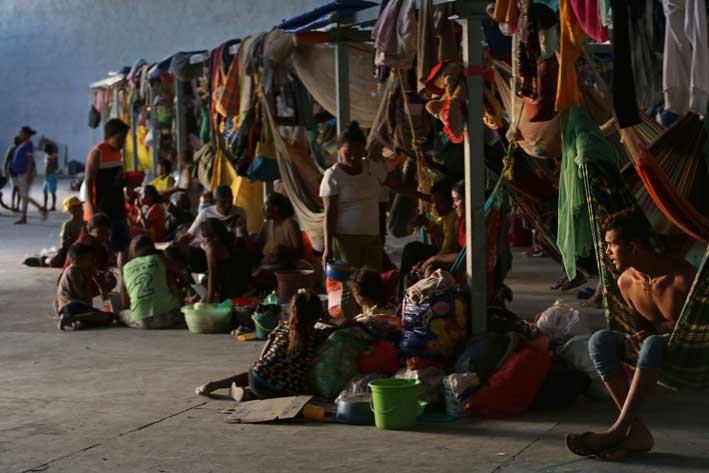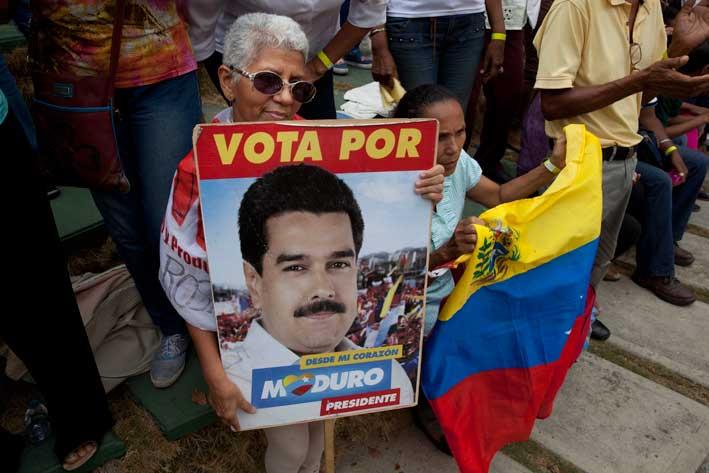There is nothing more honest and sincere than a conversation between two people over chilled beer in a relaxed atmosphere. This is how I met 23-year-old Victor Moronta. He had just ended his shift at a shabby bar in the main road of Isla Isabela, one of the three main islands in the Galapagos archipelago. The conversation started with the usual small talk. I started by pointing where the little island of Malta is on the map and trying to explain what elements constitute our very rare language. The conversation took a very serious turn, however, when Moronta mentioned he was not from mainland Ecuador, but from Venezuela.
Moronta speaks with a melodic South American Spanish accent and despite being relaxed at work, he weighs his words carefully as he explains what led him to leave Venezuela, a country which is currently facing the hardship of famine and broken families caused by a civil war. One moment he is explaining how beautiful his country is, the next he is biting his lip, trying not to cry before the gringo.
“I miss it. I miss my country, my town and my mum,” he says.

Victor Moronta left Venezuela more than a year ago, on 8 January 2017. “I left in search of better financial opportunities. My country is currently going through its worst period of inflation because of the lack of political conscience and the disastrous way previous generations led our governments.”
He explains how the current administration has adopted a highly centralized approach in which the Presidency, currently headed by Nicolas Maduro, holds most of the highest and most powerful institutions in the country. “This goes against the decentralisation of power. One man now possesses too much power over the country.”
His neat description is very close to the truth of how things are evolving in Venezuela under President Nicolas Maduro. The situation in the country took a nosedive after oil prices plummeted across the world. Venezuela’s economy practically depends on oil exportation. For many years, the country had sustained generous social programmes from the exportation of oil. When the price dropped drastically, these social programmes, which were helping millions, were the first to take a tumble.

Meanwhile, President Maduro has taken steps which, according to the Opposition, have only made him more powerful and the institutions more centralized. Huge protests have erupted in the streets of Caracas. Maduro is accusing the Opposition of trying to undermine a democratically elected government. The President has also decided to draw up a new Constitution, a process which has delayed the much-wanted general election. Protests attended by the public were met with violent force by the Venezuelan army. Hundreds have so far lost their lives in daily demonstrations.
“My country is now riddled with corruption. Every major institution in the country is tainted. The corruption is deeply-rooted in various segments of society and I don’t think we can overcome this dark era in less than a decade.”
History has shown, Moronta says, that countries that possess rich minerals and resources are often the target of corruption or invasion from outsiders. Moronta did not mean to be working in a bar, although as he explained, he is really enjoying the experience here at the Galapagos. Originally, he had been studying law and history. However, he soon realised that to be in a better financial situation he needed to leave the country as soon as possible. “With the crisis and the inflation, I could not afford to go on with my studies. Regretfully, I had to leave.”

From San Diego, the city in which Victor Moronta was born, the young Venezuelan left for Ecuador. For some time he settled in the capital, Quito. On April 2017, someone offered him a job at a bar in one of the most popular touristic destinations in South America, the Galapagos Islands. Victor said yes to the job without much hesitation. He is now running the bar where I met him and makes sure to greet every tourist who walks inside. He walks around with no shirt, showing off his ‘Moronta’ tattoo blazing on his chest. It might sound intimidating, but his smile is reassuring and trustworthy.
“I miss my mum and my brother. They are still there, in Venezuela. I miss the food and my friends. I wish I had more time to enjoy my hobbies with them.” Victor is a passionate surfer, ping-pong player (that is why he challenges everyone who walks past the table tennis table at the bar) and likes to cook. He hopes that in the near future, he can go on with his life in Europe. “All I want is to be happy and grow spiritually and professionally. Loving life is the only thing which keeps me going.”
Like Victor, thousands are fleeing Venezuela.
The trouble in Venezuela started a couple of years ago. Coincidentally, I was in Latin America in 2015, and had met a couple of Venezuelans who mentioned, only in passing, the trouble which was clouding their beautiful country. Now, as I backpack through this region again, I can see that the problem has turned into a crisis that is spiralling out of control.

Meeting young Venezuelans has now become a very frequent occurrence. Borders like the one in Peru and Colombia are experiencing a huge influx of Venezuelans hoping to cross to a better life. Luckily, the similarity in the language and culture helps for a smoother transit from one country to the next.
One German tourist who I met in Peru told me a weird yet troubling experience he had at the border. Holding a huge stash of Venezuelan Bolivar, the German man said that this money was given to him by a Venezuelan who was on the same night bus. “He just handed me this huge sum of money and said: “Take it. You cannot even buy a piece of bread with all that cash. It’s worth nothing.”
At first, we both laughed and fooled around with the thick wad of cash, pretending they were euros or dollars and slapping them around, feeling, somehow, rich. But then we both stopped smiling and told each other how sad this story was. Inflation in Venezuela has reached a record high, leaving people who had decent salaries unable to buy even the most basic essentials.
A recent outbreak in a Venezuelan prison left over 60 people dead. Prisons in Venezuela are known to be highly overcrowded and littered with weapons and drugs. The revolt in this particular prison started during visiting hours. The prisoners set a mattress on fire and the cells were soon engulfed in flames. Women and children who went to see their loved ones also lost their lives in the fire.
It is estimated that more than two million Venezuelans have left the country since the crisis started. Shortage of food supplies and groceries led to a high crime rate. Homicides in the country have risen by 91.8 per cent. Next month (May) the Venezuelan people will be called to vote in the general election.
Gabriel Schembri is reporting from South America